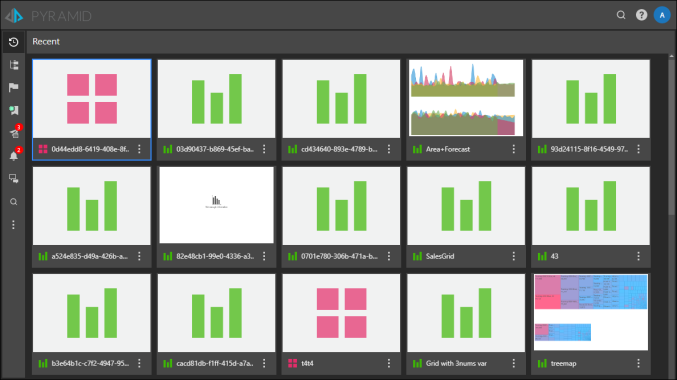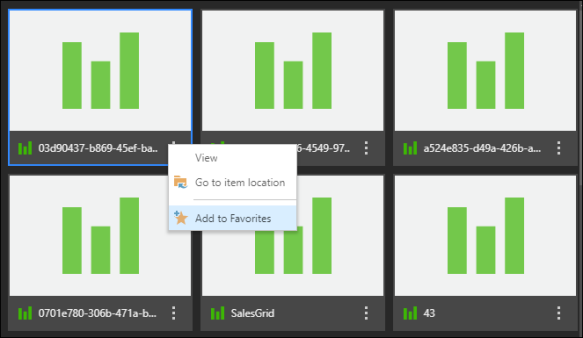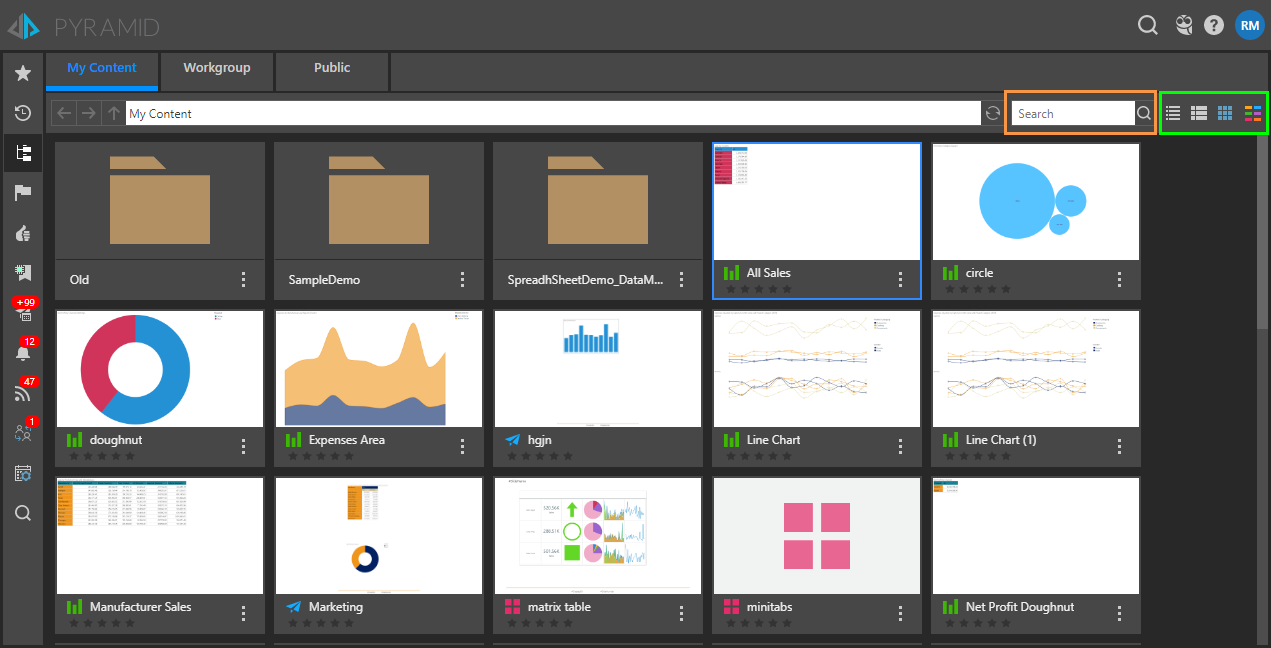Viewers are given access to a light version of the content management tools. They are primarily centered around finding and exploring the content items available to users. The different views are designed to make this functionality easy and uncomplicated.
Content Views
Favorites
These are any content items that you have flagged as a "favorite". To open an item, click on it. Alternatively, right click or open the item's context menu, and select one of the following:
- View: open the content item.
- Go to Item Location: go to the item's location in the Content Explorer.
Recent
This is your top 40 most recently opened content items. Like favorites, to open an item, click on it. Alternatively, right click or open the item's context menu, and select one of the following:
- View: open the content item.
- Go to Item Location: go to the item's location in the Content Explorer.
- Add to Favorites: add the item to your favorites list.

Explorer
Navigate the folder structures within the Content Explorer to access content items that have been assigned to you. You will only see Discover reports (green) and Present dashboards (red).
- If viewer Publish subscriptions have been enabled, you'll see Publish templates (blue). However, when opening a Publish item, you will be presented with the dialog to subscribe to the template only.
- Click here to learn more.
Most Used
The Most Used view displays your top 40 most used content items, making your most utilized content easily accessible. Click on a content item to open it. Right click on an item or open its context menu to:
- View: open the item
- Go to Item Location: go to the item's location in the Content Explorer
- Add to Favorites: add the item to your Favorites list
Auto Recommended
This view lists content items recommended by the machine learning algorithm called the recommendation engine. This helps you locate important content items that you may not be aware of.
Publications
From the Publications feed, download publications that have been shared with you (or that you have subscribed to). Click here to learn more.
Alerts
View content alerts that have been shared with you. Click here to learn about the Alerts feed, and how to build alerts.
Conversations
The Conversations Feed lists the conversations in which you're a participant. Simply click on a conversation to open it.
You can filter the Conversations Feed by three types of conversation:
- Model Conversations: conversations that apply to the given cell globally, across the given data model, regardless of the data discovery.
- Discover-Specific Conversations: conversations that apply to the given cell within the given data discovery only.
- Present-Specific Conversations: conversations that apply to the given cell within the given presentation only.
To learn more about conversations, click here.
Search
Perform an advanced search to locate a folder or content item. Enter your search term in the search bar, then choose the search type:
- Contains/ Not Contains: search for content that contains or doesn't contain the given search term.
- Exact: search for content contains the given search term exactly.
- Starts With/ Ends With: search for content containing a component starting or ending with the given search term.
- Tag Search Only: use this option to search for items containing the search term as a tag.

Favorites
Content items that you've added to your favorites list. To add a content item to your Favorites list, right click on it or open its context menu, and click 'Add to Favorites'. To remove an item from your Favorites list, right click on it or open its context menu and select 'Remove from Favorites'.

User Recommended
Top 40 content items with the highest ranking, as ranked by all users.
Content Display
From each view, you can search a content item via the search bar (orange highlight below). You can also change the display (green highlight below) to show a details view, content view, or tile view (the default is the tile view, as seen below). Using the app filter (green highlight below), you can choose to show or hide specific types of content.
